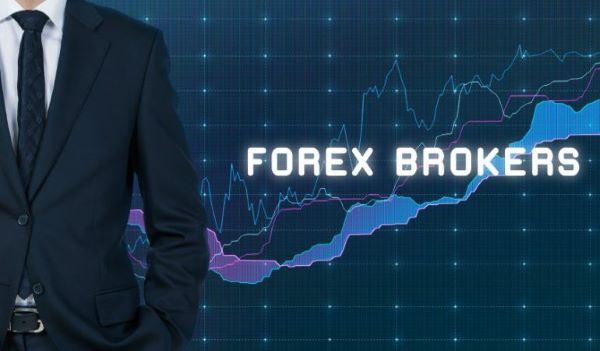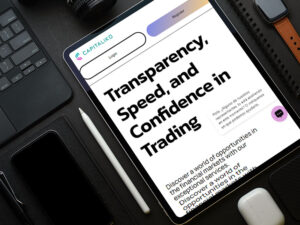What is a broker?
What is a broker? Nowadays, numerous investors, traders and speculators are used to trading securities, derivatives or other financial products through a so-called broker. The times when stocks or bonds could only be traded through banks or direct banks are now over for more than ten years. In the past five to ten years in particular, more and more brokers have established themselves on the market to offer their customers trading in financial products. Nevertheless, numerous investors, savers and speculators are not yet informed in detail about what a broker actually does, what types of brokers there are, how the provider makes its profits and what to look for when comparing the numerous brokers.
What is a broker, and what does a broker do
What is a broker, we are here to tell you everything. Most customers certainly know a broker in the form of an online or discount broker who offers trading in stocks in particular. There are also numerous other securities and other financial instruments that can be traded through the relevant broker. In a somewhat generalized way, a broker is nothing more than a financial service provider that, like banks, enables access to trading in financial products. Investors who trade in stocks or other securities, for example, inevitably need a broker. The reason is simply that private individuals are not allowed to trade on the stock exchange themselves, so a provider is required who has the appropriate access.
The essential characteristic of a broker, however, is not only that it enables customers to access as many financial products and the stock exchanges as possible, but also that a so-called trading platform is also offered. It is a special software that the customer can use to place orders, to call up his depot status or to look at charts in the course of an analysis. Such a platform is usually made available free of charge and consists of numerous components. The trading platform has various functions that are intended to make it as convenient as possible for customers to find out about trading in financial products and to place orders. For example, some brokers offer MetaTrader as a comprehensive trading platform, or use specially developed trading platforms. You can find a list of all of them in our comparisons .
In summary, it can be said that a broker performs the following tasks and offers services:
- enables access to the financial markets
- provides trading platform
- offers additional services and benefits
- supports the customer with questions and problems
- offers information material, such as real-time courses
What types of brokers exist in the financial market?
Now that you know what a broker is and what tasks the provider has, the second step is to differentiate between the numerous brokers who make their services available on the market. Brokers can be divided into various groups based on two different criteria. On the one hand, the types of broker can be divided according to which financial products the customer can trade. On the other hand, there is another distinction, which is based on the way in which the orders are executed and the trading is carried out via the company.
If you take the first-mentioned criterion as a yardstick, i.e. which financial products the customers can trade with via the respective broker, the providers can be divided into the following types:
- Stock or securities broker (online or discount broker)
- Forex broker
- CFD broker
- Binary options broker
The aforementioned types of broker can be distinguished relatively easily in practice because in principle every customer can determine which financial products can be traded through the respective provider. In the case of a stock or securities broker, for example, they primarily offer trading in bonds, stocks, funds and sometimes derivatives. A distinction can also be made as to whether the broker can only trade on the stock exchange or also over the counter (OTC trading). With binary options brokers , however, it is the case that they almost exclusively provide trading in binary options. Accordingly, a forex broker offers currency pair trading, while a CFD broker is specializes in making CFD contract trading available to clients.
So-called all-round brokers are currently particularly popular. It is a somewhat colloquial term that designates brokers who in principle provide trading in almost all financial instruments. Such an all-round broker would offer trading in securities as well as forex, CFDs and binary options.
Differentiation according to the type of order execution.
In addition to the differentiation according to which financial products the brokers offer for trading, there is also the possibility of differentiating the providers according to which type of order execution is used. In this context, the providers represented on the market can be divided into the following five large groups:
- Dealing desk broker
- Market maker
- ECN broker
- STP broker
- Introducing Broker
The difference between these brokers lies in the type of order execution as well as in the spreads, which represent the serious cost factor for you as a trader.
Here we have illustrated the difference between market makers (dealing desk brokers) and no dealing desk brokers such as ECN or STP brokers:
Differences between ECN STP and Market Maker Broker
Dealing desk broker
A characteristic of a so-called dealing desk broker is the fact that every order you place goes through the trading desk, which is located in the respective trading department of the provider.
From there, the order is either forwarded to the stock exchange or an OTC transaction is carried out. If it is an over-the-counter transaction, the dealing desk broker usually acts as the market maker at the same time.
Market maker
The main characteristic a market maker is that the order you place is not immediately forwarded to a financial market.
Instead, the broker sets its own rates and tries to execute the corresponding trade orders within its own system.
Conversely, this means that the market maker usually lets two of his own customers trade against each other.
So if customer A wants to sell, the broker looks for another customer B who wants to buy the same value under similar specifications in terms of price and quantity.
ECN broker
They can be found more and more frequently, especially in the field of foreign exchange and CFD trading. In this context, ECN is an abbreviation for “Electronic Communication Network”.
The main characteristic of such an ECN broker is that the order is forwarded directly to the so-called interbank market. The broker’s price structure is made up of flexible spreads, and sometimes a commission is also charged.
Another characteristic of the ECN broker is that, in contrast to the dealing desk broker, there is no trading desk. A list of all brokers who execute their orders according to the ECN model can be found in our ECN broker comparison .
STP broker
The so-called STP broker works in a very similar way to the ECN broker. The abbreviation STP stands for “Straight Through Processing”.
It is also the case with the STP broker that the order is forwarded directly, namely to the exchange trader. This is also referred to in technical jargon as a liquidity provider. Mostly it is a credit institute that has direct access to the markets.
Introducing Broker
A fifth group are the so-called Introducing Brokers, also known as IBs for short. In principle, these are STP brokers with one restriction.
This consists in the fact that the introducing broker only has one exchange trader and does not work with several liquidity providers. He then also receives a commission for his business activities from this respective provider.
How do brokers make profits?
An exciting question for many traders, speculators and investors is how brokers actually make profits. Of course, these providers are not charitable organizations, but commercial enterprises. That want to make a profit with their business activities.
In practice, there are three types of income in particular that can ultimately lead to a profit for the broker. Income for the broker inevitably means that the customer incurs costs. In practice, the following three types of ingestion can be distinguished:
- Fees
- Spreads
Financing costs
Almost done
The type of income the broker achieves depends in particular on the type of business activity. In the case of stock or securities brokers, for example, the fees to be paid by the customer come first.
These are usually calculated in the form of an annual custody fee and, above all, as part of the order fees. So if you place an order through a securities broker, you have to pay order costs on the basis of various fee models.
While fees are the main focus of stock brokers, Forex, CFD and binary options brokers in particular tend to make their profit based on the spread. The spread is the difference that results from two different prices, namely the buying and selling prices of an underlying asset.
The customer can therefore never sell a financial product through the broker at the price at which he previously bought it. From this small difference, the brokers achieve partly good profits due to the high sales volumes.
In addition to fees and spreads, there is another way that brokers can make profits. These are the so-called financing costs, which are particularly due if the trader holds a long position overnight. In this case, a certain interest rate is calculated for the fact that the broker has lent capital to the customer on the basis of the so-called leverage.
Compare brokers: what to look out for?
Now that you know what brokers are, what their business is, how they make profits and what types of brokers there are, there is another aspect that is particularly important to you.
It’s not just about finding the right broker, but of course you endeavor to find the provider that best suits you in the category.
Choosing a broker is by no means easy. Mainly due to the fact that there are a large number of providers on the market.
In the categories of stocks, CFDs, forex and binary options brokers alone. You now have a selection of over 100 providers on the market. It is therefore important that you know at least some characteristics that will allow you to compare providers and find the best possible company to work with.
In the overview, the following factors should play a role when comparing brokers:
- Type and speed of order execution
- Fees or other costs
- Trading platform
- Customer service
- Conditions
- Other services
As you can already see, the list that you can use to find the right broker is comparatively long. It is certainly very important that you choose one who guarantees transparent and, above all, fast execution of your orders.
Especially in tight markets and if profits are to be made with high volumes even with the smallest price differences. It is very important that the order is executed within a few seconds, if possible.
Another aspect that is of course extremely important when comparing Forex brokers is the costs you incur. Most of the time, however, this aspect is particularly important for stock and securities brokers.
When trading currency pairs and CFDs, the costs incurred are usually negligible due to the high profit potential. However, this does not apply to another point of comparison, namely the trading platform offered.
You should be fine with the trading platform. In addition, the trading platform should be user-friendly, have numerous functions and simply suit you well. Of course, stability and security are also criteria that can speak for or against a trading platform.
Especially for beginners, the quality and availability of customer service is definitely a decision criterion, which is of greater importance. For example, pay attention to the ways. The employees can be reached and whether the customer support is available in your own language.
Sometimes it makes sense in this context to contact an employee before opening a depot to test the service. Alternatively, it is also a good idea to obtain detailed information about one or the other provider via so-called reviews (experience reports) .
Read more about forex, crypto and binary brokers in our brokers page








